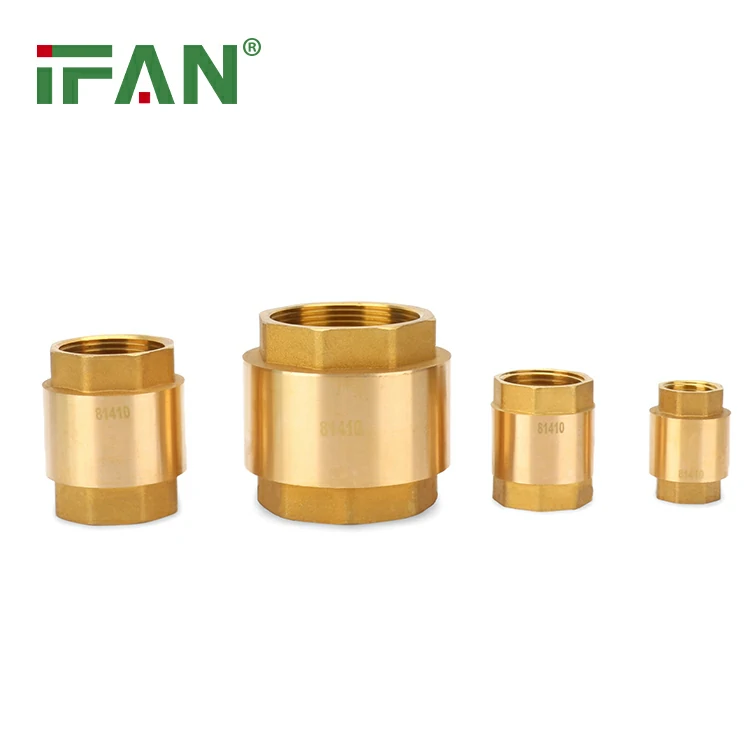High-quality brass check valves are engineered for reliability, durability, and optimal performance in preventing backflow. Here are the essential design features that distinguish premium brass check valves from inferior ones:
1. Material & Construction
A. High-Grade Brass Body
- DZR Brass (Dezincification-Resistant) – Resists corrosion and dezincification in water systems.
- Lead-Free Compliant (LF Brass) – Meets safe drinking water standards (e.g., NSF/ANSI 61, WRAS).
- Precision Machining – Ensures smooth internal surfaces for better flow and sealing.
B. Robust Internal Components
- Stainless Steel Spring (in spring-loaded valves) – Resists rust and maintains tension for quick closure.
- EPDM or Viton Seals – Provides a tight seal and resists wear, chemicals, and high temperatures.
- Polished Seat & Disc – Minimizes friction and ensures leak-proof sealing.
2. Valve Type & Mechanism
A. Swing vs. Spring-Loaded Design
- Swing Check Valve
- Hinged disc for low-pressure applications.
- Requires gravity/backflow to close (slower response).
- Spring-Loaded Check Valve
- Instant shutoff, prevents water hammer.
- Works in any orientation (horizontal/vertical).
B. Full Port vs. Standard Port
- Full Port Design – Larger internal diameter for minimal flow restriction (ideal for high-flow systems).
- Standard Port – More compact but may cause slight pressure drop.
3. Sealing & Leak Prevention
- Bubble-Tight Seal – Prevents even minor leakage when closed.
- Soft Seat (EPDM/Nitrile) – Enhances sealing in low-pressure systems.
- Metal-to-Metal Seat (Brass/Stainless Steel) – Better for high-pressure or high-temperature applications.
4. Pressure & Temperature Ratings
5. Connection Types & Installation Flexibility
- Thread Types: NPT (National Pipe Thread), BSP (British Standard Pipe).
- Union Connections – Allows easy removal for maintenance.
- Compact Design – Fits in tight spaces without compromising performance.
6. Anti-Water Hammer Features
- Spring-Assisted Closure – Prevents sudden slamming, reducing pipe shock.
- Dampened Disc Movement – Some models include hydraulic dampers for smoother operation.
7. Certifications & Compliance
- NSF/ANSI 61 – Safe for potable water.
- WRAS Approval (UK water regulations).
- ISO 9001 – Quality manufacturing standards.
8. Maintenance & Longevity Features
- Easy Disassembly – Some models allow cleaning without full removal.
- Corrosion-Resistant Coatings – Electroless nickel plating for extra protection.
- Debris-Resistant Design – Prevents clogging in dirty water systems.
Conclusion
A high-quality brass check valve should have:
✔ DZR/LF brass construction for corrosion resistance.
✔ Stainless steel spring & durable seals for longevity.
✔ Bubble-tight sealing to prevent leaks.
✔ Proper pressure & temperature ratings for the intended application.
✔ Certifications (NSF, WRAS) for safety compliance.
View more:https://www.ifanfittings.com/


